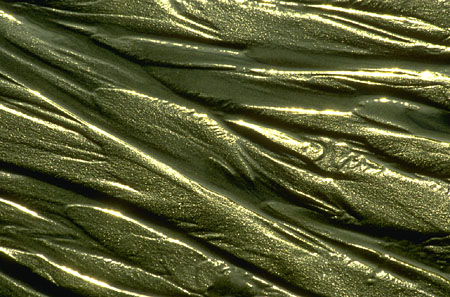LITR 5535: American
Romanticism

Sample Student Midterm 2006
Sharon Lockett
3 October 2006
The Sublime:
A Coveted Escape from Reality
In literature, romantic heroes and heroines sometimes encounter
experiences so awe-inspiring and yet so terrorizing that they find themselves
unwittingly taken from a “normal” state of mind to a transcendent one.
In these cases, individuals move between senses of pleasure and pain, of
serenity and conflict, and of quiescence and terror until, ultimately, they are
transported beyond their own sense of reality to an unexplained level of
existence. This mix of emotional
contradiction is known as the sublime, and, although it remains incomprehensible
to romantic characters and their readers, it provides a uniquely all-consuming,
yet satisfying, human experience and is one that cannot be replicated or sought
within the normalcy of everyday life. For
Romantic heroes, this balance of pleasure and pain provides equalization in
existences marked by unpredictability and incongruence.
In Course Objective 1a. Romantic
Spirit or Ideology, the first objective is "to identify and criticize ideas
and attitudes associated with Romanticism, such as desire and loss, rebellion,
nostalgia, idealism, the gothic, the
sublime, the individual in nature or separate from the masses."
Indeed, as many of our texts reveal, the pleasure/pain motif exists as a
vital element in Romanticism. When
characters experience the sublime, they find themselves captivated by the moment
and often become transferred to almost heavenly realms.
This transference is prompted by a desire to escape reality and
highlights the idea of the Romantic impulse which states that "the Romantic
impulse may be as simple as a desire for anything besides 'the here and now'--or
'reality'; thus the quest or journey of the romance narrative involves crossing
physical borders or transgressing social or psychological boundaries in order to
attain or regain some transcendent goal or dream."
Thus, as Romantic characters seek to move beyond sublunary existences,
they often encounter moments of the sublime.
And as they transition psychologically from “the here and now,"
they realize, at least momentarily, an emotionally or spiritually
"transcendent goal or dream."
Nancy Gordy, in her 2003 Midterm,
notes that the sublime is “a literary concept that denotes a mixture of pain
and pleasure leading to [a] transcendent state of lofty emotions beyond the
normal state of mind.” Her definition is exemplified throughout the course readings
this semester as characters move beyond the ordinary and become transfixed in
moments of exaltation. Jonathan
Edwards’ “Personal Narrative” exemplifies the intense, more spiritual
aspects of the sublime while Washington Irving’s “The Legend of Sleepy
Hollow” and “Rip Van Winkle” illustrate the captivation and delight
afforded by this pleasure/pain motif. These
works also converge in their contributions to and synthesis with James Fenimore
Cooper’s The Last of the Mohicans.
To begin, Jonathan Edwards is an
individual for whom the sublime offers a daily mode of existence.
His "Personal Narrative" reveals a lifelong struggle with
perceived wickedness, and in his attempts to abandon sin and achieve holiness,
Edwards mentally turns himself inside out in self-examination and reflection.
These accounts of spiritual purging culminate in moments of sublimity and
lead Edwards to a supernal frame of mind. During
one of many spiritual episodes, he remembers being “carr[ied] away” with
“a kind of vision, or fixed ideas and imaginations of . . . sweetly conversing
with Christ, and wrapt and swallowed up in God" (185-186).
Losing himself in the moment, Edwards delights in the transfer from a
"here and now" (1a) mentality to one fixed upon heavenly identities.
This transcendence allows him to cross psychological boundaries (1a) and
escape his perceived state of iniquity. As
a result, the transcendent goal (1a) he desires affirms his righteousness and
seals his communion with God.
At another point in Edwards’
narrative, while recounting an experience in his father's pasture, he testifies
to a feeling he cannot explain:
I seemed to see them both in a sweet conjunction: majesty and meekness joined together: it was a sweet and
gentle, a holy majesty: and also a majestic meekness; an awful sweetness; a
high, and great, and holy gentleness. (186)
Though Edwards may not be able to explain his feelings, he
knows this mixture of gentleness and strength, and of humility and majesty,
provides completeness and satisfaction as he remains in the transcendent vision.
The “sweet conjunction,” as he calls it, engulfs his senses and
embodies a full range of emotions. Subconsciously,
though, he realizes that the balance provided by the pleasure/pain aspect
affords him a sense of equalization, thus providing stability and assurance in
an otherwise unstable existence between iniquity and righteousness.
Like Edwards, who longs for escape from a sinful nature, Ichabod Crane
looks for distraction from the mundane existence provided by his everyday
routine as the village school teacher. Unlike
Edwards, however, whose experience in the sublime transfers him to coveted
heavenly realms, the singing-master finds pleasure and pain in the more shadowy,
occult elements of the sublime. “It
was often his delight,” writes Irving, “to stretch himself on a bed of
clover . . . and con over old Mather’s direful tales" (4).
In these “witching hour” escapes, Crane's mind diverts
psychologically (1a) from "the here and now" (1a) to lofty notions of
the occult. Haunted escapades in the “awful woodland” fill his
“excited imagination” and he enjoys a “fearful pleasure” in listening to
"marvellous tales of ghosts and goblins" (4).
Interestingly, he directs his mental, emotional, and psychological
passion toward that which he fears most.
Like Edwards, Crane crosses
mental and psychological boundaries (1a) in order to realize full escape from
the ordinary. As he
becomes entranced by these moments of pleasure and pain, Crane is able to move
beyond the “normal state of mind” to which Gordy alludes and reach a
transcendent (1a), otherworldly plateau. And
even though he does not verbalize the pleasure/pain elements as Edwards does,
Crane senses this desirable combination of delight and horror and is able to
find stability in the balance of emotions. In his otherwise unpredictable existence marked by transient
housing and the capricious antics of school children, he can enjoy moments of
equalization and consistency.
A final character who, like
Edwards and Crane, seeks to escape the laborious realities of life, is Rip Van
Winkle. In particular, Van Winkle
longs to find relief from "the here and now" (1a) as embodied by
oppression of an impulsive and domineering wife.
Like Crane, Van Winkle finds sanctuary in nature, namely the secluded
woods of the Catskills, where he can escape domestic suppression and its tyrant.
Climbing to his mountain retreat at the highest point of the Catskills,
Van Winkle beholds the "deep mountain glen, wild, lonely, and shagged, the
bottom filled with fragments from the impending cliffs, and scarcely lighted by
the reflected rays of the setting sun" (452-3). From another vantage point, he takes in the “silent but
majestic course” of the “lordly Hudson" (452).
In this scene, the juxtaposition of solitude and fury and of timidity and
grandeur transports Van Winkle to a realm beyond the ordinary.
“For some time,” Irving writes, “Rip lay musing on this scene"
(453). Van Winkle has become
transfixed and psychologically transformed (1a) by the pleasure/pain dynamic and
enjoys the satisfaction of sensory fulfillment.
Moreover, the balance of emotional expression affords Van Winkle
composure and endurance while coping with the unforeseeable demands and volatile
outbursts of Dame Van Winkle. As
Van Winkle experiences the sublime in his secluded mountain retreat, he, like
Edwards and Crane, is able to move into an individualized transcendent state
(1a) and find personal harmony in an otherwise chaotic existence.
Edwards, Crane, and Van Winkle,
as they encounter pleasure and pain of the sublime, find moments of convergence
in their experiences. Each desires
to move beyond "the here and now," and each encounters a psychological
transformation in the realization of a transcendent experience.
Indeed, they embody the Romantic Spirit or Ideology of Objective 1.
Our discussion would not be complete, however, without studying one more
group of individuals--the romantic heroes of The Last of the Mohicans
and, in particular Duncan Heyward.
In Cooper's tale, elements of the
sublime abound as heroes become, on one hand, awestruck by the majesty of
creation and, on the other hand, soothed by its peace and quietude.
While in constant struggle with unforgiving natural elements and
bloodthirsty savages, characters welcome moments of escape from a horrid reality
over which they have no control. Heyward,
along with the others, struggles daily in an unsparing existence marked by
uncertainty and horror. For this
wilderness hero, "the here and now" (1a) is literally a
minute-to-minute existence, and momentary escapes provide at least a temporary
reprieve from brutal reality. One
such occasion takes place as Heyward and the group emerge from a cave in which
they have found refuge. Cooper
describes the scene:
A heavy evening breeze swept
along the surface of the river . . . whence it issued heavily and constant, like
thunder rumbling beyond the distant hills . . . the scene was as still as night
and solitude could make it. (66)
Here, the natural setting compares with Van Winkle’s
view from his vantage point in the Catskills as the tranquility of the night is
set against the turbulent stirring of the waters.
And, like Van Winkle, Heyward becomes, in silence, transfixed on the
scene. When he finally speaks, the
remark encapsulates the meaning of the sublime:
“There is nothing to be seen but the gloom and quiet of a lovely
evening . . . how much should we prize such a scene . . . !” (67).
Heyward is, of course, along with the others, relieved upon finding an
absence of bloodthirsty natives. However,
he also finds himself captivated by the emotional mix of pleasure and pain:
"Fancy yourselves in security and what now, perhaps, increases your
terror, may be made conducive to enjoyment--“ (67).
In
these remarks, Heyward makes connection with both Edwards and Crane.
First, like Edwards, he is able to verbalize the pleasure/pain elements
of the sublime and in doing so may reach a more spiritualized transcendent state
than either Crane or Van Winkle. And
second, like Crane, Heyward derives pleasure and enjoyment from terror and,
moreover, is enchanted by the very thought of horror and dread. In addition, like Crane, Heyward psychologically (1a)
"crosses over" to embrace the very thing he dreads in an effort to
reach transcendence.
A final point of convergence
between these four romantic heroes can be found in the equalizing nature of the
sublime experience. Just as Edwards, Crane, and Van Winkle find within the
sublime a balance of full emotional expression, so does Heyward find in the
pleasure/pain experience the ability to maintain poise in an unsettled reality.
For this frontier hero, the volatility of the wilderness, the
unpredictability of natives, and the risks faced daily on an uncertain trail
leave him in a perpetual state of turmoil.
And as he finds stability, if only for a moment, in the balance of
pleasure and pain, he can escape the reality of his perilous situation and find
repose in an ever-changing wilderness.
For Edwards, Crane, Van Winkle,
and Heyward, the sublime provides a vehicle of escape as they seek coveted
relief from the frustrations, the struggles, the complexities, and the tedium of
everyday existence. As these individuals long for existence beyond reality, they
are ready to undergo psychological transference into much sought-after levels of
transcendence and spirituality, and, like other Romantic heroes, they stand
ready to welcome both awe and terror. These
heroes realize that spiritual fullness lies not in "the here and now,"
but in something beyond. And while
they may not always be able to define their road to transcendence, they continue
to seek it. In this, they serve as
true embodiments of the unwavering Romantic spirit.
|
|
|
|


